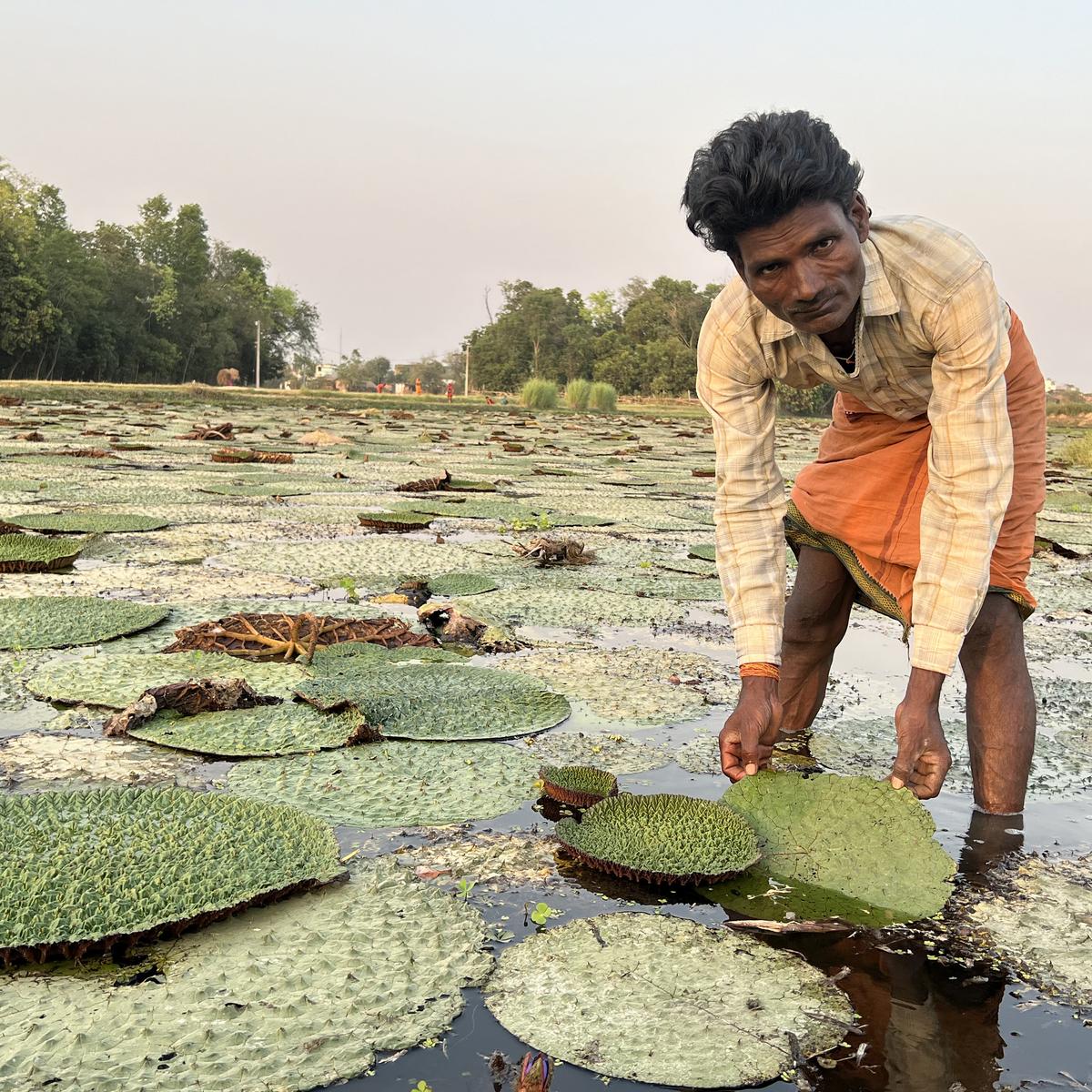Phool dev Shahni, like his father and grandfather before him, once made a living diving into deep, muddy ponds to collect euryale ferox seeds, also known as makhanas, fox nuts, or lotus seeds. These seeds are highly valued for their nutritional benefits, being rich in B vitamins, protein, and fiber, and are used in various foods, including snacks and dishes like kheer.
However, the traditional method of harvesting involved long hours submerged in 8ft deep water, leading to physical hardships such as cuts from thorny plants and skin problems from the mud.
Recent innovations have transformed makhana cultivation, making it easier and more profitable. Farmers now grow the plants in shallow water, about a foot deep, which allows for faster and more efficient harvesting.
This change has significantly improved income for farmers like Mr. Shahni, who can now earn double the amount compared to traditional methods. He is proud of his heritage and intends to pass it on to his children while benefiting from the modernized process.
The shift in cultivation methods was pioneered by Dr. Manoj Kumar, a senior scientist at the National Research Centre for Makhana (NRCM). Recognizing the limitations of growing makhanas in deep ponds, Dr. Kumar helped develop the shallow water technique, which has taken off in recent years.

Innovative Techniques Transform Makhana Farming, Boosting Profits for Bihar’s Farmers
This innovation, combined with the development of a more resilient and productive seed variety, has tripled the income of farmers and helped them adapt to unpredictable weather patterns in Bihar, such as floods. Efforts are now underway to develop machines that can harvest the seeds more efficiently.
Farmers like Dhirendra Kumar have embraced the switch to makhana cultivation, finding it more profitable than traditional crops like wheat and lentils, which were frequently destroyed by floods.
After experimenting with makhanas on his family farm, Dhirendra was amazed by the success and now grows the crop on 17 acres of land. This shift has not only brought financial benefits but has also opened up employment opportunities for local women, further improving the socio-economic situation in the region.
Innovations have extended beyond the fields as companies like Madhubani Makhana develop machines for processing makhanas, improving both production quality and worker safety. Traditionally, the seeds were roasted and popped by hand, a time-consuming and dangerous process.
However, with new machines, the process has become more efficient and hygienic. While production is increasing, demand for makhanas continues to rise globally, and experts like Shambhu Prasad, the CEO of Madhubani Makhana, believe that significant growth in production will be needed to lower prices. Overall, makhana cultivation is transforming agriculture in Bihar and bringing new opportunities to the state.
